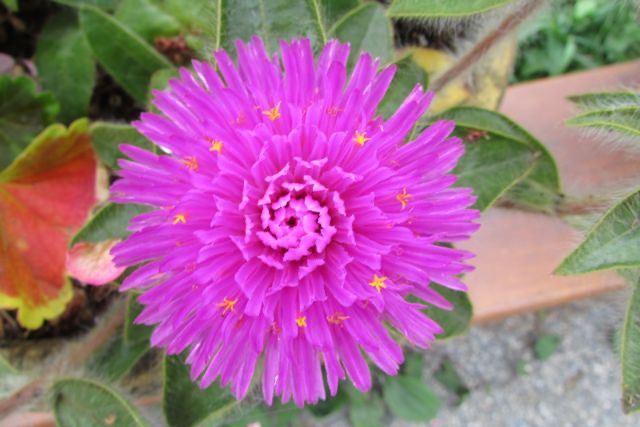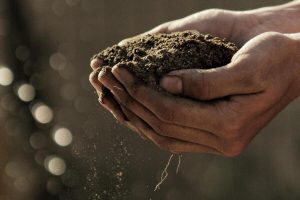by Christine Sine
On Saturday I facilitated a Spirituality of Gardening webinar with a small but fun group of participants. This is my first such seminar for several years. In preparation I enjoyed looking back and reminding myself of some of the lessons the garden has taught me about life and God and spirituality. Gardening helped me develop a new rhythm of life and relax into times of refreshment and renewal after seasons of busy work. In some ways it turned my world and my perceptions of life upside down. Here are a few of my lessons.
Share generously with others.
Gardeners are the world’s greatest sharers or cross pollinators. They love to talk about their garden designs, share recipes, produce and techniques. They love to hear the stories othersshare and never feel they know it all. Along the way they learn, rethink their ideas, experiment and come up with new and creative plans that improve the beauty and the harvests. For too long we thought that the way to successful living wa to hold our ideas to ourselves. Yes patents and copyrights are sometimes necessary to protect our intellectual rights, but they can also stifle creativity and new design. When we share all of us benefit.
I used to struggle with the offering of first fruit to the priests. Can you imagine what hardship this was to the poorest and most vulnerable in the community? It seemed like the wrong kind of sharing to me. Then I read that the corners of the fields left to be gleaned by the poor were not subject to this law and I thought “Thank God, who did not subject the poor to such hardship.” Our God is merciful and just. If the wealthy honored the true practice of first fruit offering, the poor would still be provided for.
Spring, that season between planting and harvest was once known as the hunger season. Some communities survived the hunger season better than others because of their strong sense of responsibility for and generosity towards each other. Sometimes landowners freely gave from their own hoarded grain to help the poor around them survive. Others always made sure they left generous gleanings for the poor. I wonder: What of God’s provision are we hoarding that we should be sharing generously with those in need?
There is no failure in the garden.
This was one of my first and best lessons from the garden. Just saying these words makes me feel good. Such a relief to know that failure is not only expected but is a necessary part of growth. When a plant doesn’t thrive it makes me try harder next time. If something doesn’t work this year, don’t give up. Don’t condemn yourself because it didn’t work. Try again immediately or next year or plant in a different place in the garden. Take note of what does thrive. Build up the soil. Ask the experts. One of the primary tenets of social entrepreneurship is fail well. Some even say we need to become masters at failure as it encourages imagination, creativity and new ideas . (see Imagination First 187) Failure is not disaster it is a learnable skill that is necessary for success.
Plan for surprise
There is nothing more wonderful than going out in the garden and discovering something totally unexpected growing and flourishing. I love to wander my garden looking closely to see which seeds, scattered in autumn are sprouting. These are always the strongest and healthiest plants. Sometimes we yank out these plants with the weeds because we don’t recognize them for what they are – God’s surprising gifts of new life.
Life and faith are a little like that too. I wonder “What did God plant in us over this last year that is now sprouting and should be nurtured into strong healthy plants? What plants have I “weeded out” because I did not identify them for what they are?
Routine and narrow expectations can stifle our imagination. Rigid adherence to patterns as they always were can stagnate and limit our growth. We need to regularly rinse out our expectations and allow the random unexpected happenings to take over. A couple of years ago, my best autumn greens were a patch just behind my raised beds that self seeded. One of my garden helpers almost covered them over thinking they were weeds. Fortunately I stopped him in time and encouraged everyone to walk around the patch. This unexpected surprise provided an amazing harvest for our salads.
Look, listen and learn.
Stillness is a fertile breeding ground for imagination and new ideas. Wandering through my garden with no other intention than to breathe in the stillness of God and admire the flowers gives unexpected rewards. For example, to fill in my flower pots which were decimated by the summer drought in Seattle last year, I planted gomphrena. I knew nothing about it but the plants in the garden nursery caught my attention. Usually I look at the flowers from a distance but then one day I walked close and was stunned by the beauty. The wonder of the leaves covered in dew and then the emergence of tiny yellow flowers on the bright pink flower like bracts has awed and stirred me.
Build up the soil.
This is the number one tenet of organic gardening. If plants do not thrive, it is not their fault it is mine. Did I plant the wrong seeds, in the wrong place or at the wrong time? Maybe in my haste to get started this year I didn’t pay attention to some of the basic principles of gardening and neglected the soil. Healthy soil produces healthy plants. And what is the best way to “build up the soil”. Add lots of compost. What begins as moldy refrigerator left overs and dead corpses of broccoli, and rotten potatoes is transformed into black, sweet smelling fertilizer, “black gold” which not only adds nutrients to the soil but also improves it structure and makes it better able to retain water.
Know the feeling? Maybe I should build up the soil around the gifts and talents within me or my faith community that I believe should be flourishing now. Perhaps the best way to build up what God wants to flourish in the coming months is by adding “compost” Often it is the stinky, smelly things from our past, those things we want to throw out in the garbage, that God wants to take hold of and transform into the foundations of my faith and ministry.
All good things begin small.
Every plant grows from a tiny seed, a seed that germinates in darkness away from the world. Forcing it into the light too soon destroys it. Similarly with fruit. It begins with a single pollinated flower that grows slowly. Even when it reaches full size it may not be ready for harvest. We need to continue to wait until it ripens. Fruit picked before it is ripe usually lacks flavour.
We are easily overwhelmed by the immensity of the problems in our world- gun violence, poverty, sex trafficking, injustice and abuse, climate change – no matter what the issue we want to respond to, we can easily feel powerless because our own small efforts seem so trivial. Yet in God’s economy, every small seed is capable of producing fruit, but it takes time and patience and care.
Encourage Diversity.
Variety is the spice of life for the avid backyard gardener. It is not just plant variety that is important, it is also wildlife diversity. An organic garden is alive with humming bees, chirping birds and busy flittering butterflies. Attracting and keeping birds, insects, spiders toads and bats and keeping soil healthy and full of microorganisms is essential. I am fascinated by the concept of companion planting. Learning what helps protect vulnerable plants from pests and disease is an important
God never plants a mono culture. You just need to the variety of weeds that grow in a crack in the pavement to know that. There is often a veritable garden so why do we try to make churches with little or no diversity? Communities of faith thrive best when there is diversity – of culture, age, ethnicity, sexuality and even belief. We all thrive best when we have a variety of companions – family, friends, community.
Gain Not Drain.
God’s economy gains, it doesn’t drain the soil. In one of his books Michael Pollan tells of an experiment he did in which he grew squash plants in pots. He weighed the soil before he planted and after he harvested 30 lbs of squash from the plants. He added the weight of the dead plants to be added to the compost and guess what – the soil gained weight. Growing and harvesting did not drain the soil. Such a contrast to much modern consumption which drains both resources and life from our planet. What a great principle for life. Is what we do draining life or adding to it? Are we using up resources that cannot be replaced or are we living sustainably? Is our faith growing and becoming more abundant or is it shrinking? These are great questions to consider as we eat the amazing harvest of God’s garden.
Nature Encourages Us To Be Creative.
The garden calls to us in a special way that says “join with the creator in the creativity of this space” – whether it be in its design, creation, or productivity. Creativity offers us the opportunity to find meaning, and communion with others. It brings us healing and wholeness and draws us into special and enriching relationship with God our creator.
I encourage everyone to keep a garden or nature journal – written or a photo journal. Take time each week to reflect on what you see, what you feel, what fragrances catch your attention, what activities you perform and how they make you feel. Take photos, draw sketches, write poetry. For a quick an easy guide to nature journalling check out
Wild Wonder and Lilly and Thistle
Creativity often begins with questions. Some are simple – What on earth am I going to do with 500 lb apples? a question that gave rise to many recipes and the creation of the Godspacelight Community Cookbook several years later. How can I recycle this in the garden? is another great question to ask. I just recycled the old bath from our bathroom as a wildflower garden and saved 250 lb of metal from the dump.
Some questions are more complex – like a question posed by my good friend Andrew Wade question “What if I designed my garden with God and neighbor in mind?
As you watch the video ask yourself – What is God wanting to teach me from the garden? How should I respond?


